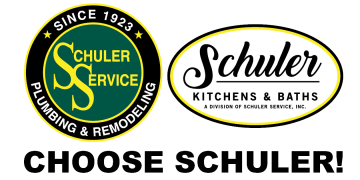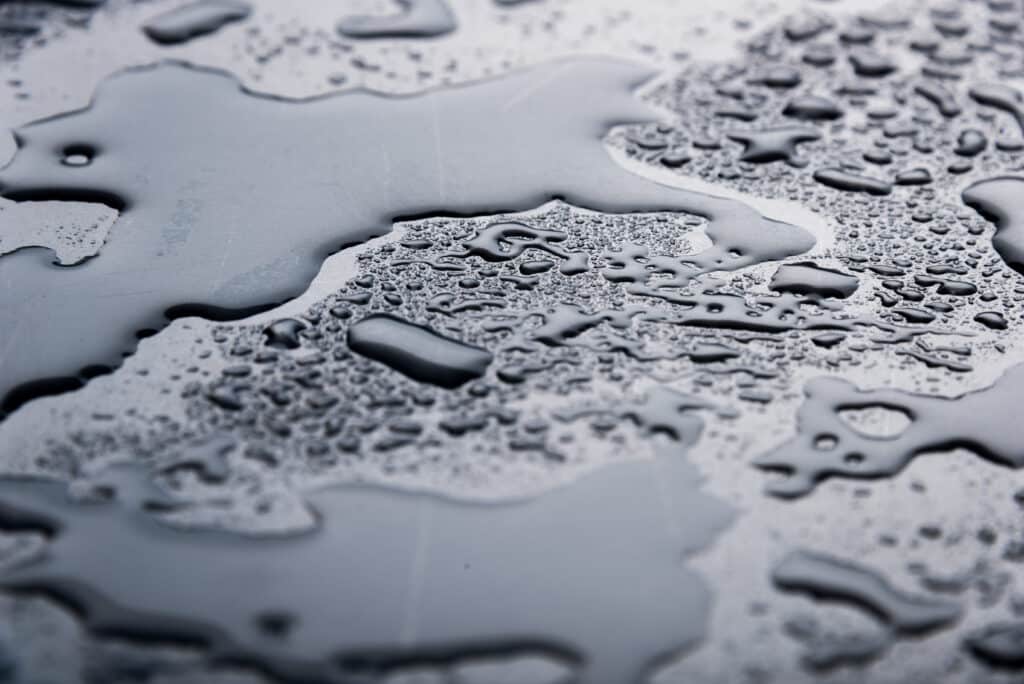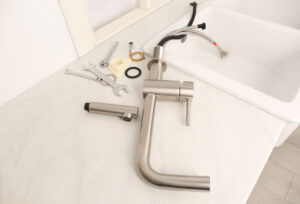Water and sewer rates across the Lehigh Valley have climbed steadily over the past decade, and recent dry summers have prompted voluntary conservation calls from Bethlehem to Allentown. Fortunately, much of the “waste” leaving a typical household is reusable.
Greywater—the gently used flow from showers, bathroom sinks, and washing machines—can replace potable water for landscape irrigation or even toilet flushing. Rainwater, captured as it runs off a roof, offers an additional, chemical-free supply for gardens and outdoor cleaning. Together these sources can trim fresh-water demand by up to 40 percent and cushion homeowners against both drought restrictions and rising utility bills.
Designing an Eco-Friendly Plumbing System
Diverter valves and piping sit at the heart of any reuse setup. A three-way valve on the laundry standpipe, for instance, can redirect rinse water into a small filter box instead of the sewer. For rainwater, a downspout diverter channels roof runoff into a sealed barrel or underground cistern.
After diversion comes filtration and treatment. A simple mesh or sock filter removes lint and hair from greywater before it reaches drip lines. Rain barrels employ a “first-flush” device that discards the initial, debris-laden gallons of a storm. Homeowners who plan to use reclaimed water indoors—say, for toilet flushing—often add a compact UV sterilizer or chlorination chamber for extra peace of mind.
Delivery methods depend on lot layout. If your yard slopes away from the house, gravity alone can feed soaker hoses. Flat properties may need a small 12-volt pump, frequently powered by a rooftop solar panel.
Safety isn’t optional. Pennsylvania plumbing codes require backflow protection—usually a double-check valve or reduced-pressure assembly—so that reclaimed water cannot siphon into the potable supply. All non-potable lines must be color-coded purple and clearly labeled “NON-POTABLE.” Schuler Service’s licensed plumbers incorporate these safeguards during installation, along with freeze-proof spigots and easy-drain barrel stands for winter shut-down.
Savings, Regulations & Maintenance
Real-world data show dramatic payoffs. A two-child Allentown family, for example, could run roughly 250 loads of laundry per year—about 5,000 gallons of rinse water. Routing that volume to “laundry-to-landscape” lines eliminates an equivalent draw from the municipal system and can shave $60-$80 off the annual water bill. Add two 55-gallon rain barrels and the family picks up an additional 4,000–5,000 gallons of free irrigation each summer.
Before cutting pipes, homeowners should check local rules. The Pennsylvania Department of Environmental Protection treats most reuse schemes as “reclaimed water systems,” triggering a Water Quality Permit process for anything more complex than a basic rain barrel. Municipalities may also limit greywater discharge to subsurface drip lines and require periodic sampling if the water is used indoors. Partnering with an installer who handles the paperwork ensures that inspections—and resale disclosures down the road—go smoothly.
Maintenance is straightforward but vital. Clean barrel screens monthly, empty above-ground tanks before the first hard freeze, and replace cartridge filters every six to twelve months depending on sediment load. A midsummer five-minute rinse keeps UV bulbs free of mineral scale, preserving sterilization efficiency.
Schuler Service: Bringing It All Together
Schuler Service has woven innovation into everyday plumbing since 1923, from the region’s first tankless-water-heater installs to today’s smart leak-detection valves. Our licensed technicians will:
- Design a greywater or rainwater system tailored to your yard grade, family size, and landscaping goals.
- Handle permits and inspections so you remain fully compliant with DEP and municipal codes.
- Install and service diverter valves, purple-pipe loops, filtration units, pumps, and freeze-proof fixtures—using only code-approved materials.
- Educate you on detergent choices (phosphate-free soaps are best), seasonal shutdown procedures, and simple upkeep that extends equipment life.
Whether you’re curious about a single rain barrel or envisioning a whole-home retrofit, Schuler Service can turn yesterday’s wastewater into tomorrow’s resource—sustainably, safely, and with measurable savings. Reach out today to schedule a consultation and start reclaiming your water.





